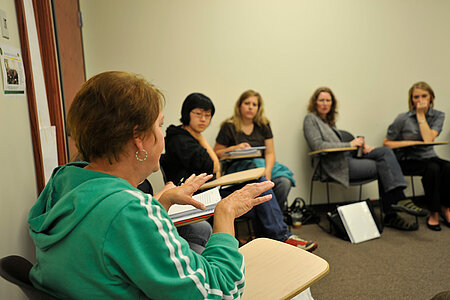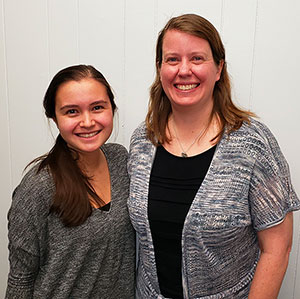
Ensuring high standards and quality through accreditation

One of the many ways we endeavor to offer the students in the College of Human Sciences and Education a quality experience is by offering programs that are accredited or credentialed through national professional standards organizations. Accreditation is a validation process in which universities and specific educational programs are evaluated by their peers. The College of Human Sciences and Education offers a wide variety of accredited programs as well as programs that are approved to fulfill credentialing standards.
Accreditation standards guide which learning objectives are required while allowing the program to cover the content in a way that best suits their program and the needs of their students. For example, accreditation through the Council for Accredited Counseling and Related Educational Programs (CACREP) requires that we set high standards for admission, that all faculty be highly qualified, and that clinical coursework be limited to small class sizes. Accreditation matters post-graduation as well. Students in the Counselor Education program are allowed to sit for their national credentialing exam while completing their final courses, while others have to wait at least two years. Many states require a degree from a CACREP accredited program in order to be licensed or credentialed, and the Tri-Care and Veterans Affairs organizations will only hire counselors from CACREP accredited programs.
Other accredited programs in the college include:
- Teacher education programs
- Advanced (K12 administrator) licensure programs (e.g., Educational Leadership)
- Social work and elementary education portions of the dual degrees offered in the HDFS program
- Hospitality and Tourism Management program
- Interior Design
- All dietetics programs
- Exercise Science
- Master of Athletic Training
- The Family Science option of our HDFS major as an approved academic program for students seeking the Certified Family Life Educator (CFLE) credential
- The Family Financial Planning graduate certificate and M.S. programs are registered, meaning that students completing the program can earn their Accredited Financial Counselor (AFC) credential.
Adolescent body image research feature

NDSU associate professor of human development and family science, Beth Blodgett Salafia, and doctoral graduate research assistant, Kerrie Leonard, study adolescent body image issues. Utilizing MyVoice, Salafia and Leonard are collecting data directly from individuals aged 14-24. MyVoice is an interactive tool built on an SMS platform that gathers the opinions and experiences of youth across America. Through real-time text message polling, MyVoice can reach adolescents quickly via a platform they are already utilizing.
“While social media body image challenges are widespread, very little has been done to research them,” said Salafia. “With new challenges appearing constantly, MyVoice gives us the perfect platform to quickly engage with a group who are aware of them and many who have been impacted by them already.” Leonard added, “I want to help the individuals in our communities counter these potentially harmful activities. By understanding them, we can help develop defenses for the individuals who are negatively affected.






